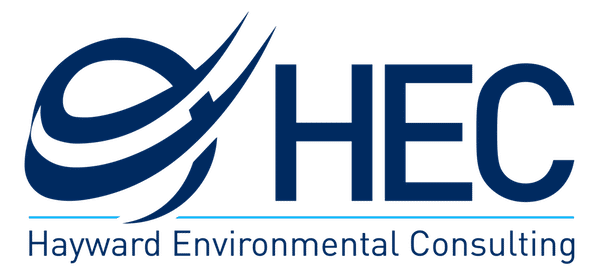Hazardous Waste Resources
Hazardous Waste Resource Database
If your business generates hazardous waste, you are responsible for understanding what federal and state regulations apply to you and we have compiled a detailed list of hazardous waste resources to help. The U.S. Environmental Protection Agency (EPA) is the governing body that presides over all treatment, storage, and disposal of hazardous materials. Beneath that federal organization, every business in the U.S. is subject to state laws. Failing to comply with any of these regulations puts your business, employees, and the environment at risk.
Ensuring your business follows all applicable laws is essential, and it can also be overwhelming. Hayward Environmental Consulting specializes in complete hazardous materials management. We guide business owners who are faced with ongoing and emergency hazmat situations so they can focus on their businesses.
We’ve created a comprehensive resource guide to help simplify how businesses manage their hazardous waste. These hazardous waste resources are a starting point to proper hazardous waste management.
Frequently Asked Questions Regarding Hazardous Waste
What classifies as hazardous waste?
What is an EPA Provisional Identification Number?
How do I determine my business’s generator category?
To determine which category your business belongs to, you must calculate how much hazardous waste your business generates per month. All measurements are taken in pounds, and if your business produces liquid waste, you must convert gallons to pounds to provide an accurate measurement. Reclaimed scrap metal, universal waste, and residue left on the bottoms of containers after being emptied do not need to be counted.
The qualifications for each category are as follows:
• VSGQ – less than 220 pounds per month
• SQG – between 220 and 2,200 pounds per month
• LQG – more than 2,200 pounds per month
Once you determine which category your business belongs in, you are responsible for following all applicable regulations.
What is an episodic event?
What is universal waste?
How do I ensure my business is following all hazardous waste regulations?
These companies are well trained in the management of hazardous waste and have detailed knowledge of all related laws and regulations. If you choose to go this route, it is in your best interest to research a company with a reliable reputation and specific experience with your type of hazardous waste. They will know the specifics of what needs to be done to keep your business in compliance, but you are ultimately responsible for all your hazardous waste. If something goes wrong, you will be the one to face the consequences.
General Resources
- Managing Your Hazardous Waste – A Guide For Small Businesses (PDF)
- Learn the Basics of Hazardous Waste – Environmental Protection Agency
- Hazardous and Recycled Waste – EPA
- Hazardous Waste Treatment, Storage, and Disposal Facility Fire Code Gap Analysis – National Fire Protection Association (PDF)
- Household Hazardous Products and Hazardous Waste: A Summary for Consumers – Penn State College Of Agricultural Sciences
- Renewable Energy Rundown: Biomass
- Material Decomposition – How long it takes for trash to decompose
- Guide to Marine Plastic Pollution
Health Resources
- Mesothelioma Hub – A resource for Mesothelioma support and information about treatment.
- The Pleural Mesothelioma Center is dedicated to educating people on the dangers of asbestos and how to stay safe if they suspect it in their home.
Additional Arizona, California, and Nevada resources for your business
Resources and Regulation Boards By State
Along with federal regulations, every business is responsible for meeting and understanding state law. Governing boards within each state enforce and maintain hazardous waste procedures to protect the environment and safeguard human health.
You’re encouraged to visit your state government’s website to familiarize yourself with local requirements regarding hazardous waste.
Alabama | |
Alaska | |
Arizona | |
Arkansas | |
California | |
Colorado | |
Connecticut | |
Delaware | |
Florida | |
Georgia | |
Hawaii | |
Idaho | |
Illinois | |
Indiana | |
Iowa | |
Kansas | |
Kentucky | |
Louisiana | |
Maine | |
Maryland | |
Massachusetts | |
Michigan | |
Minnesota | |
Mississippi | |
Missouri | |
Montana | |
Nebraska | |
Nevada | |
New Hampshire | |
New Jersey | |
| New Mexico | |
| New York | |
| North Carolina | |
| North Dakota | |
| Ohio | |
Oklahoma | |
Oregon | |
Pennsylvania | |
Rhode Island | |
South Carolina | |
South Dakota | |
Tennessee | |
Texas | |
Utah | |
Vermont | |
Virginia | |
Washington | |
West Virginia | |
Wisconsin | |
Wyoming |
Alabama
California
Colorado
Connecticut
Delaware
Georgia
Kansas
Louisiana
Maryland
Massachusetts
Michigan
Minnesota
Mississippi
Missouri
Montana
Nebraska
Nevada
New Hampshire
New Jersey
New Mexico
New York
North Carolina
North Dakota
Ohio
Oregon
Pennsylvania
Rhode Island
South Carolina
South Dakota
Tennessee
Utah
Vermont
Virginia
West Virginia
If you have further questions about your business’s hazardous waste, contact Hayward Environmental Consulting for a fast response and ethical solution.

